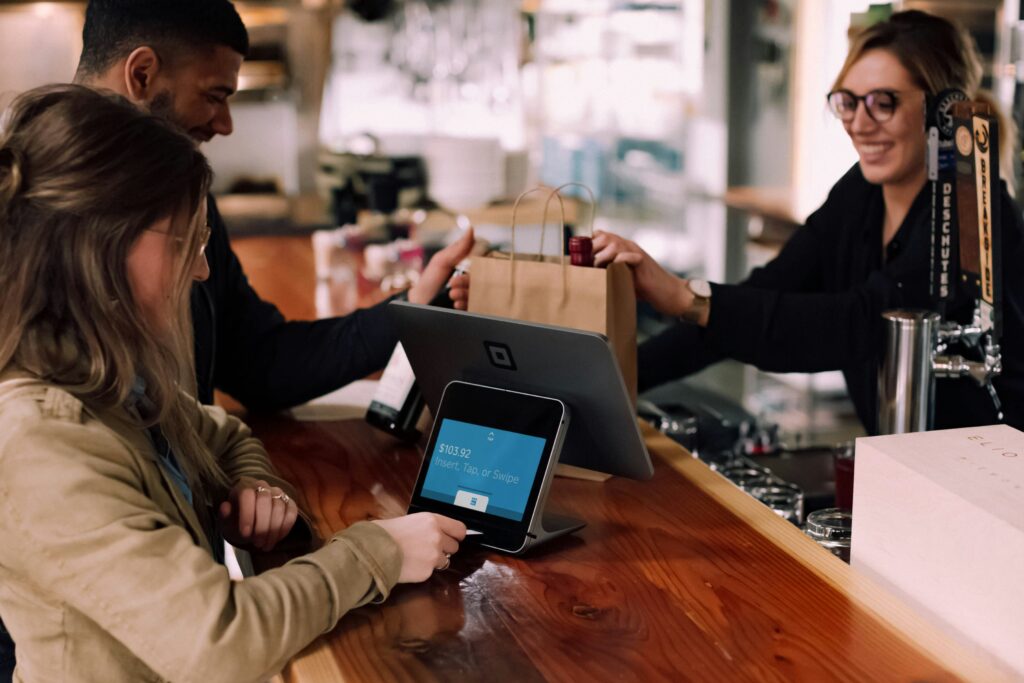
In an age where business trends are constantly in flux, one constant remains: E-commerce will continue to grow. E-commerce retailers ran $5.8 trillion in sales in 2023, with experts projecting that number to hit $7.9 trillion by 2027. Online business is booming.
As more businesses migrate to online sales, many feel the growing pains of scaling a dependable online payment processing system. From security and fraud prevention to the emergence of AI in payments, here are the most critical trends to follow regarding the future of payment processing.
Emerging Trends in Digital Payment Processing
As digital payments evolve rapidly, several emerging innovations drive greater security, flexibility, and convenience, ensuring smoother and more personalized payment experiences for customers.
- Buy Now, Pay Later: BNPL services allow customers to split payments into affordable, often interest-free installments.
- Cryptocurrency Integration: More businesses today accept cryptocurrencies, like Bitcoin, as an alternative payment option for tech-savvy customers.
- Artificial Intelligence: Many companies use systems trained with machine learning to make online payment processing more seamless and secure (learn more about AI in payments below).
- Biometric Authentication: New authentication methods, like facial recognition and fingerprint scans, have become a more convenient and secure alternative to traditional passwords and PINs.
Most modern payment processing innovations focus on heightening security and enhancing the customer’s online shopping experience.
The Rise of Secure Online Payment Processing
As retail sales moved to online venues, it opened the door for new security threats that weren’t possible with old-school payment methods. Secure payment systems are specialized infrastructures that safely process financial transactions and are necessary for preventing fraud and unauthorized access.
Secure online payment processing systems use several tools to prevent fraud:
- Encryption: Converting plain text data into a code.
- Multi-Factor Authentication: Requiring users to provide multiple forms of identification before completing a transaction.
- Fraud Detection Systems: Advanced tools that identify and prevent unauthorized or questionable transactions.
- Payment Gateways: Programs that quickly transmit data between a business’s website and a payment processor to confirm card details, available funds, and authorization of payment transfers.
- Digital Wallets: Electronic tools that allow users to store payment information.
Each time a customer purchases from an online retailer, there is an implicit guarantee that the business will protect the customer’s financial information. Consumers expect fast, reliable, and secure transactions, and companies that fail to implement secure payment systems may lose customer trust and loyalty in the digital age.
The Role of AI in Payments

Artificial Intelligence is revolutionizing how businesses handle online payments. Systems like Stripe Radar use machine learning to analyze data across millions of companies and detect and block fraud without blocking legitimate transactions. AI can also optimize payment routing, ensuring faster transactions while reducing processing fees and failed payments.
On top of improving online payment processing security, companies like PayPal have successfully implemented AI to personalize customers’ shopping experiences. AI Chatbots can answer product questions, offer personalized recommendations, and provide automated order status updates, enhancing the customer’s online retail shopping experience.
Implement Secure Online Payment Processing

As payment processing continues to evolve, businesses must adapt to these emerging trends to stay competitive and meet customer expectations. Whether you’re leveraging AI to enhance security, offering BNPL options, or integrating multi-factor authentication, staying ahead of these innovations is crucial for growth and retaining customer loyalty.
With Payment Plugins, businesses can easily implement proven online payment processing systems. Payment Plugins offers free and secure payment solutions for WooCommerce stores, integrating with popular gateways like Stripe, PayPal, and Braintree. These highly rated plugins allow businesses to accept multiple payment methods—including buy-now-pay-later options—and offer features like automated payment capture. Don’t wait to start improving checkout experiences and boosting conversion rates. Learn how to improve your e-commerce business’s payment processing today!
